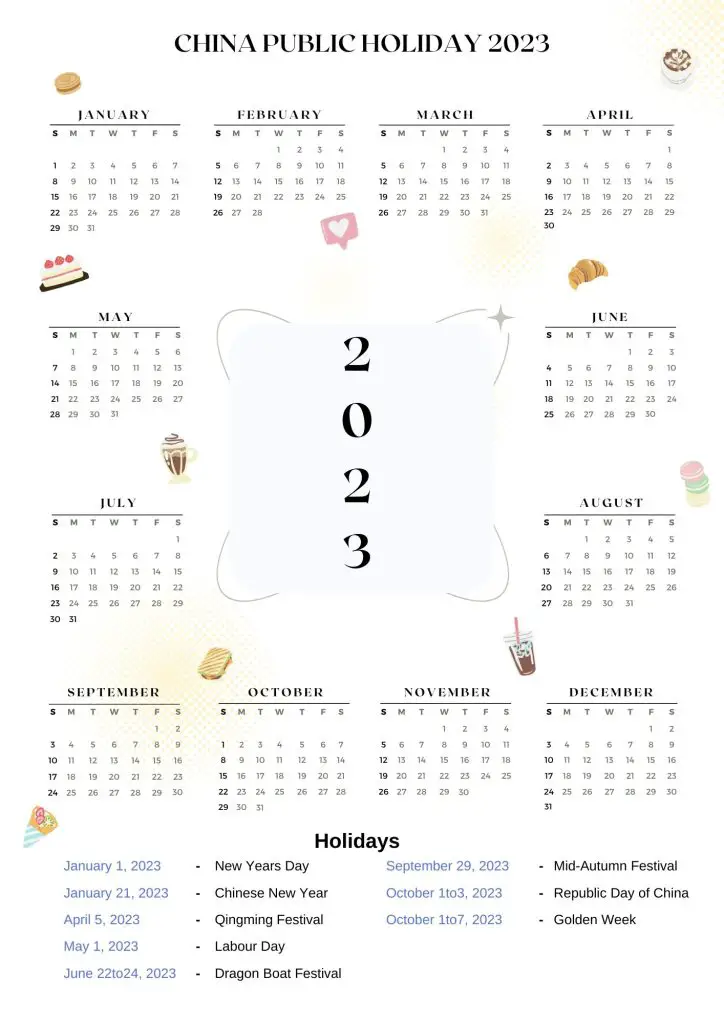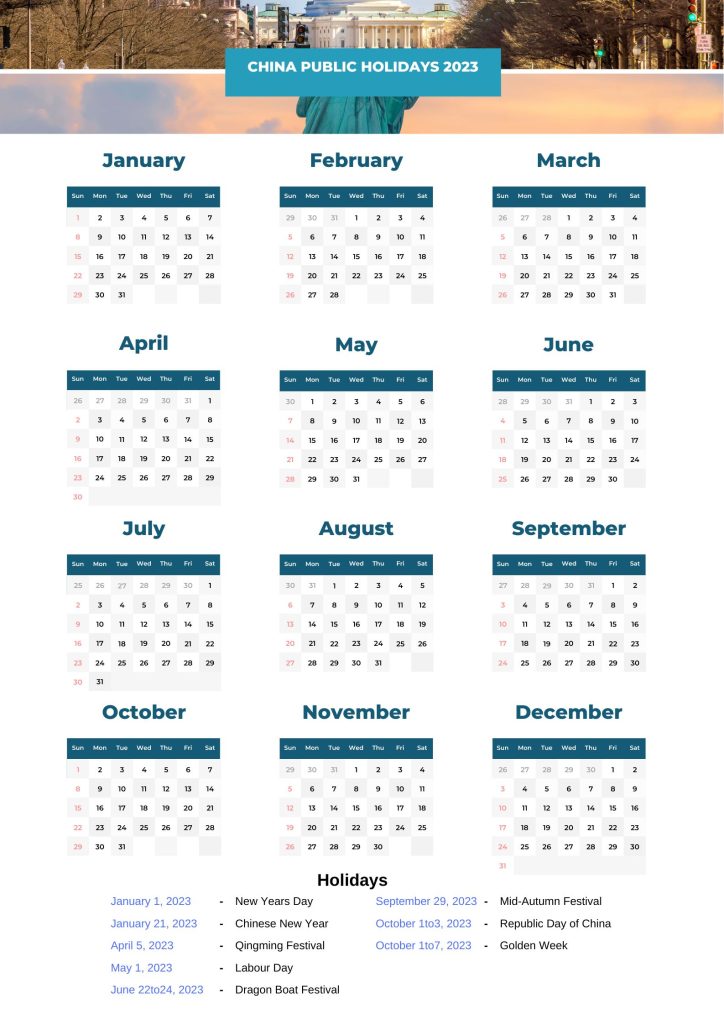China Public Holidays 2023- All in all, these holidays are an integral part of Chinese culture and provide a way for people to come together and celebrate with their families and communities. The following are China Public Holidays 2023:
China Public Holidays 2023
- New Year’s Day: January 1st
- Spring Festival: The date varies, typically in January or February. It is also known as Chinese New Year.
- Tomb Sweeping Day: April 4th or 5th (Qingming Festival)
- May Day: May 1st
- Dragon Boat Festival: The date varies, typically in May or June (Duanwu Festival)
- Mid-Autumn Festival: The date varies, typically in September or October (Zhongqiu Festival)
- National Day: October 1st
In addition to the main public holidays, there are also several other traditional holidays that are celebrated in China. These include:
- Lantern Festival: The date varies, typically in February or March (Yuanxiao Festival)
- Double Seventh Festival: The date varies, typically in August (Qixi Festival)
- Ghost Festival: The date varies, typically in July or August
- Winter Solstice: The date varies, typically in December
Chinese people also have traditional customs, like Chinese New Year’s Eve, it is a time for families to gather together and have a big feast. During the Spring Festival, people also enjoy traditional foods such as dumplings and tangyuan, and give red envelopes filled with money to children.
In addition to these traditional holidays, there are also several regional holidays that are celebrated in different parts of China. For example, the Lantern Festival is more widely celebrated in southern China, while the Double Seventh Festival is more popular in northern China.
Public Holidays 2023 in China
China Holidays are an essential part of the country’s culture and are celebrated by people of all ages and backgrounds. They provide an opportunity for families and communities to come together and participate in traditional customs and practices.
The Spring Festival, also known as Chinese New Year, is the most important and widely celebrated holiday in China. The exact date varies, but it typically falls in January or February. This festival is a time for families to gather together and participate in traditional customs such as eating dumplings and tangyuan and giving red envelopes filled with money to children. During the Spring Festival, people enjoy lion and dragon dances, fireworks, and other cultural activities.
Ghost Festival is also known as the Hungry Ghost Festival and is a time when it is believed that the spirits of the dead return to the living world. Winter Solstice is also celebrated as Dongzhi Festival and is celebrated by eating dumplings and other traditional foods.
All in all, Holidays are an integral part of the country’s culture and provide an opportunity for people to come together and celebrate with their families and communities. They are a time to reflect on the past, make plans for the future, and participate in traditional customs and practices that have been passed down for generations.


Leave a Reply